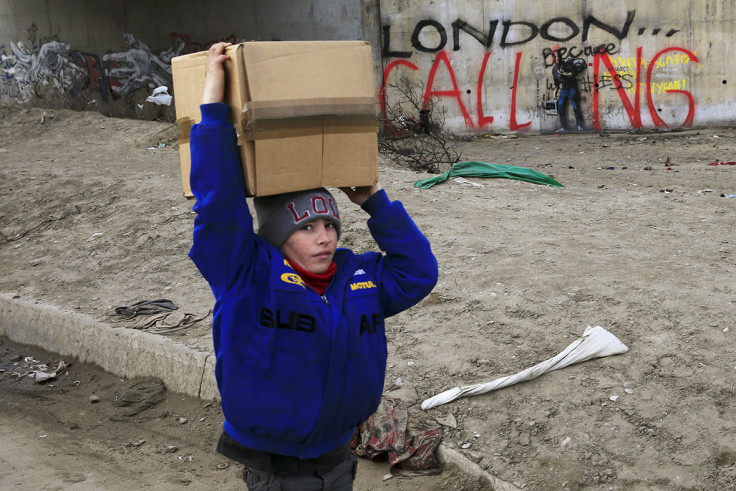Jungle eviction: Up to 2,000 migrants in Calais's refugee camp ordered to leave by Tuesday

Hundreds of residents of the makeshift immigrant camp in northern France known as the Jungle have been told to clear out by Tuesday night as French authorities prepare to clear the site. The local government in Calais has issued an expulsion order to refugees living in the southern part of the camp, ordering them to pack up their makeshift homes and possessions by 8pm on Tuesday or face forcible removal by police.
Authorities reckon that between 800-1,000 migrants fleeing wars in Syria, Afghanistan and Iraq, or African countries with poor human rights records, currently live in that part of the camp. Observers from the various NGOs that work at the camp, however, insist that twice that many people could be living in the area. The affected people have been told to move to nearby shipping containers, which have been converted into shelters, or to 'welcome centres' in other parts of France.
The southern section is the most built-up part of the Jungle, and contains churches and mosques, as well as cafes and shops. It is considered to be the cultural hub of the camp.
Migrants will 'scatter'
Eight organisations involved with the camp sent an open letter to the French interior minister this week, insisting that the government's ideas are "very far from answering the needs of the problems encountered", and saying that migrants could scatter along the coast.
In total, the Jungle is believed to house more than 4,000 people, most hoping to be able to cross the English Channel into Britain, under terrible conditions.
On Thursday, a group of 145 actors, writers and other celebrities wrote an open letter asking David Cameron to allow children from the camp to enter the UK.
Organised by Jude Law, and signed by the likes of Benedict Cumberbach, Idris Elba and Thandie Newton, the letter asked the prime minister "to persuade the French authorities that the decision to destroy further parts of the camp in Calais is postponed until all the minors currently residing there are either given full child protection within the French system or enabled to reunite with their loved ones in Britain".
It continued: "This is a humanitarian crisis that needs to be acknowledged as such, and it is imperative that we do everything we can to help these innocent and highly vulnerable refugees, especially the minors, as swiftly as is humanly possible."
© Copyright IBTimes 2025. All rights reserved.






















